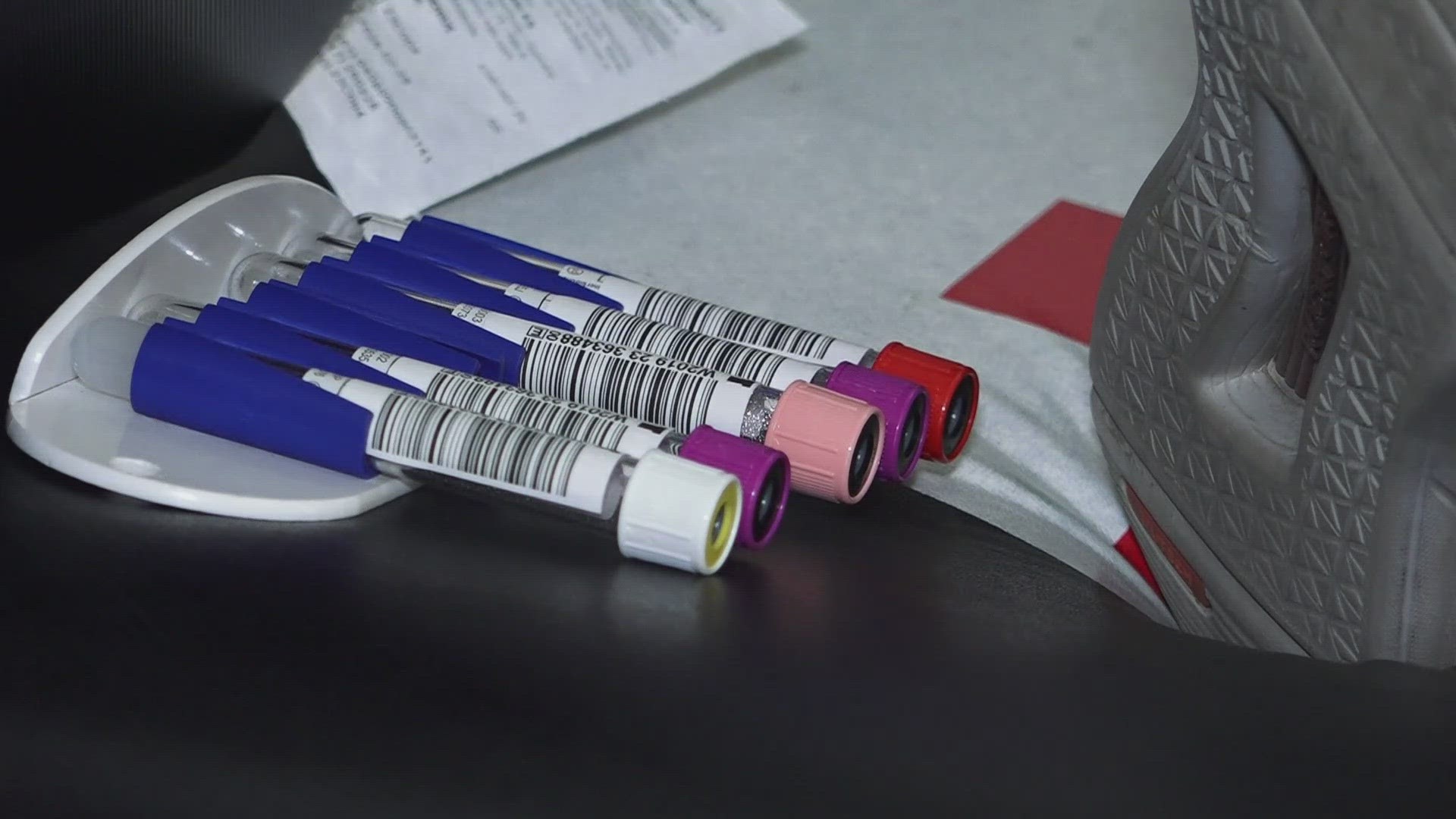KNOXVILLE, Tenn. — As the Red Cross reports a nationwide blood shortage, millions of new donors just became eligible to give.
Previous guidelines from the Food and Drug Administration (FDA) prevented millions of men who have sex with other men from being able to donate blood, but now the rules have changed.
Among those who are now finally able to donate is Joe Stabb, an openly gay man who works as a professor at the University of Tennessee (UT). As he got ready to donate at the American Red Cross off of Middlebrook Pike on Tuesday, Stabb recalled the first time he ever tried donating blood back when he was 18 years old.
"I was still in high school and there was a blood drive in the high school and I wanted to give blood," Stabb said. "And I went to give blood and I was told that I was unable to and I was upset."
For decades, the FDA stated men who have sex with other men had to abstain from sex for 90 days before donating blood. Doctor William Schaffner, an infectious disease expert at Vanderbilt University, said these guidelines stem from times when the HIV epidemic was rampant.
"There was much less certainty about our knowledge about how the AIDS virus was transmitted," he said.
Some health experts criticized those guidelines saying they were not based on science. Leaders in the LGBTQ+ community also objected saying the rules prevented mostly men in monogamous relationships with other men from donating.
Now after years of research, the FDA has reversed course and blood banks across the country are now opening up their centers to millions of new donors, like Professor Stabb.
"Over the years, it is funny, I have been able to donate bone marrow for another organization; I have been able to do other things and give donations to help save lives and things like that," he said. "And it was really just this one policy from the FDA that has now changed, so now I can give. I am happy to give today and I am happy to, hopefully, continue to give as I am allowed to in the future."
Julie Byers, an account manager with the Red Cross, explained all donors will now answer the same eligibility questions and will be assessed for blood donation based on individual risk factors and not on sexual orientation.
"The science is behind it," Byers said. "It is not just, 'Oh, we are going to just open it.' That is not the case. And all donations are tested anyways, so, no matter who is donating, every donation is tested anyways."
Health experts like Byers hope this new move will help deal with the ongoing blood shortage in the country.
"Summer is a really hard time [to get people to donate] because of all the activities and everything that is going on," she said. "And as we are coming off [a shortage], then we are going into the winter months and we start to go into another one in December and January."
Byers said this new guidance is also about making blood donation a more inclusive environment.
"We really want to be able to include as many people as we can," she added. "We do not ever want to shut the doors on anybody."

